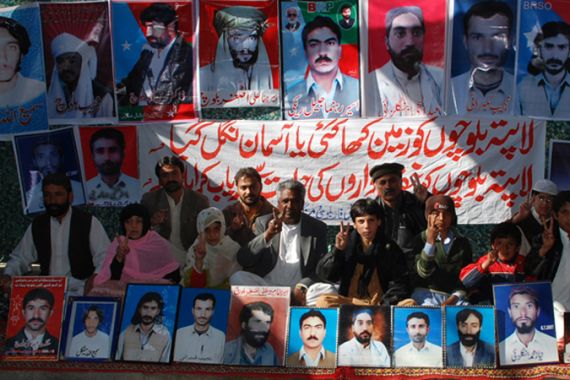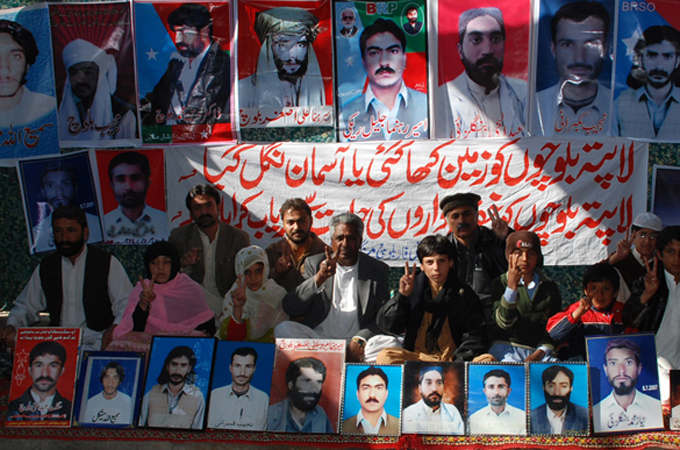‘Enforced disappearances’ in Pakistan slammed
Human Rights Watch report says hundreds in Balochistan province dragged from their homes by armed men since 2005.

 |
| HRW says it has recorded 150 so-called “kill and dump” deaths in Balochistan[Human Rights Watch] |
Human Rights Watch has called on the Pakistani government to immediately end widespread “enforced disappearances” of activists by the military and intelligence agencies.
The New York-based rights group said in a report released this week that hundreds of enforced disappearances have been committed since 2005 in the southwestern province of Balochistan.
The Pakistani government on Friday rejected the claims. “We have responded to all this before. It’s basically untrue,” Army spokesman Major General Athar Abbas said.
HRW said it had also recorded 150 so-called “kill and dump” deaths in Balochistan since January alone, many of which may have been by Pakistani security forces.
The report detailed 45 cases of alleged disappearances gathered from more than 100 interviews with victims, families, local rights activists, lawyers and witnesses.
Victims told the group that they had been picked up from their homes at night by gangs of armed men, questioned and beaten without being told why.
“Pakistan’s security forces are engaging in an abusive free-for-all in Balochistan as Baloch nationalists and suspected militants ‘disappear,’ and in many cases are executed,” said Brad Adams, Asia director at HRW.
The rights group’s report, entitled “We Can Torture, Kill, or Keep You for Years”, documented cases of uniformed paramilitary troops, police and the much-feared ISI intelligence agency being involved in the abductions.
The government in Islamabad has cracked down on dissent in Balochistan since rebels rose up in 2004, demanding autonomy and a greater share of wealth from the region’s oil, gas and mineral resources.
“Pakistani security services are brazenly disappearing, torturing, and often killing people because of suspected ties to the Baloch nationalist movement,” Adams said.
“This is not counterinsurgency – it is barbarism.”
Detained for months
One victim, Mazhar Khan, told how he was at a friend’s house in Noshki district in December 2009 when armed men stormed in, blindfolded him and the friend and drove them to different locations.
Khan was questioned about Baloch political activity and held alone in a dark room for nearly two months before being released on the side of a road near Quetta, the provincial capital.
His friend’s whereabouts are still unknown despite his family fighting a high court battle in which judges have asked the ISI, police, federal and state authorities to provide information about any charges against the men.
HRW said the number of abductions and executions was unknown but that in 2008 Rehman Malik, the interior minister, said there had been at least 1,100 victims of “disappearances” in Balochistan. Other officials have disputed the figure.
Balochistan, which borders Iran and Afghanistan, has a long history of tensions with Pakistan’s central government and the province is now beset by violence and Taliban fighters as well as a separatist insurgency.
Pakistan officials have often denied allegations about the “disappearances”, saying many of the claims are separatist propaganda and that the courts ensure that legal procedures are followed.